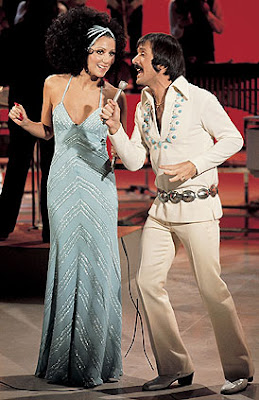Review: Harrell finds many subtleties in Dvorak
Bruce R. Miller, Sioux City Journal, September 23, 2011
In great contrast to me, I suppose.
Antonin Dvorak wasn't interested in writing any works for cellos -- ...
He wasn't?
... he didn't think they were good solo instruments.
He didn't?
Thankfully, wiser heads convinced him otherwise and he produced the Cello Concerto in B Minor -- ...
Ah yes, the masterful op. 104. The first and only piece for solo cello that Dvorak ever wrote, not counting the first Cello Concerto in A major, B. 10, his Cello Sonata in F minor, the Polonaise in A major for cello and piano, the Rondo in G minor (which he later orchestrated), the arrangements he made of his Slavonic Dances for cello and piano, or the transcription of Silent Woods for cello and piano, and later for cello and orchestra.
Wiser heads truly did prevail.
...a piece that Lynn Harrell owned Saturday night performing with the Sioux City Symphony Orchestra.
Don't you mean pwned?
Bopping along...
Bopping along? ...in his little red wagon?
...with the orchestra's parts, he practically made the music seem as if it was one of classical music's Top 10.
Which, of course, it's not. Pssh.
To even suggest that this piece belongs in the same esteem as Eine kleine nachtmusik or the William Tell Overture (just the Lone Ranger part, not the rest, of course) is blasphemy. Classical music's Top 10 is a sacred, unalterable law of nature. I mean, would you really have Time Life Recordings remake all those cds?
He got his cello to sing, too, mimicking Lori Benton's superior flute work and justifying the brass section's noble fanfares.
The cello sang, copying the flute and justifying the brass? Sure, that sounds like orchestration 101 to me.
The piece -- part of a Dvorak night -- wasn't one you'd go home humming, but it did have plenty of work for everyone to do.
So, the Dvorak was more like Bill Lumbergh?
 figure superfluous Office Space reference, loosely tied to Dvorak: "Hello Peter, whats happening? Ummm, I'm gonna need you to go ahead come in tomorrow. So if you could be here around 9 that would be great, mmmk... oh oh! and I almost forgot ahh, I'm also gonna need you to go ahead and come in on Sunday too, kay. We ahh lost some people this week and ah, we sorta need to play catch up."
figure superfluous Office Space reference, loosely tied to Dvorak: "Hello Peter, whats happening? Ummm, I'm gonna need you to go ahead come in tomorrow. So if you could be here around 9 that would be great, mmmk... oh oh! and I almost forgot ahh, I'm also gonna need you to go ahead and come in on Sunday too, kay. We ahh lost some people this week and ah, we sorta need to play catch up."Harrell, in fact, gave his fingers such a deft workout you frequently wanted a camera on them to see just how he was able to zip from the melodramatic to the sublime.
Precisely, a giant scoreboard with closeups, replays, and the 'kiss cam' in between pieces. Whatever I can do not to listen to the music.
Harrell played well with all sections of the orchestra (even those that had some timing snags) but he was particularly chummy with the woodwinds.
 figure chummy: Lynn and the woodwinds reenacting the battle of Antietam. As I assume most woodwind sections do.
figure chummy: Lynn and the woodwinds reenacting the battle of Antietam. As I assume most woodwind sections do.The adagio showed they were willing to step up to their guest's level and compete. The horns did nicely, too.
I'm sure the horns will appreciate the shout-out.
And that chilling fanfare in the end? It may have been Dvorak's way of putting a button on a request,...
A button?
...but it certainly gave Harrell the rest he needed before launching into a more familar [sic] encore.
Just as Dvorak intended. Subtly, of course.
The rest of the program was filled with other Dvorak works...
As all-Dvorak programs tend to do, from time to time.
... -- the rather passive "In Nature's Realm," the more familiar Symphony No. 7 in D minor.
"Passive", "familiar"...sounds like a Dvorak concert to me.
Still, it was the Lynn and Lori show that impressed.
I love that show.
While the rest of the orchestra got a chance to shine in the third number, it was Benton's complementary work that deserved the compliments.
Are we still talking about the concerto?
Harrell may not have the flash of friends Itzhak Perman and Pinchas Zukerman, but he more than has the skills.
Itzhak Perman?! I realy ove that guy. Seriousy.
Saturday night, he was willing to share them with the Siouxland musicians.
Wait. Itzhak Perman and Pinchas Zukerman were there?
And the result? The result was good, very good.
Gabby Hayes good?
Even better?
Even better than Gabby Hayes, the cello concerto that almost wasn't, and the unrestrained irreverence of the Lynn and Lori Smile-Time Variety Hour!?
If it isn't a complete and utter non-sequitur, and extremely patriotic, I'm not sure it could be any better.
The orchestra started the season with a rousing version of the Star Spangled Banner. While this was probably a given decades ago, it was nice to see it back -- a good way to start what could be a great season.
I know, I was totally in danger forgetting that piece.
Wait...what did you say about subtleties?





